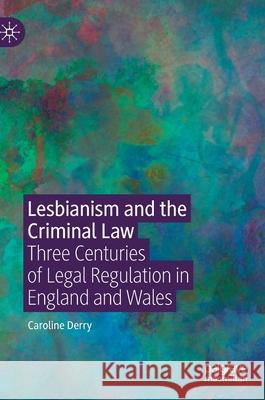Lesbianism and the Criminal Law: Three Centuries of Legal Regulation in England and Wales » książka
topmenu
Lesbianism and the Criminal Law: Three Centuries of Legal Regulation in England and Wales
ISBN-13: 9783030352998 / Angielski / Twarda / 2020 / 323 str.
Lesbianism and the Criminal Law: Three Centuries of Legal Regulation in England and Wales
ISBN-13: 9783030352998 / Angielski / Twarda / 2020 / 323 str.
cena 443,82 zł
(netto: 422,69 VAT: 5%)
Najniższa cena z 30 dni: 424,07 zł
(netto: 422,69 VAT: 5%)
Najniższa cena z 30 dni: 424,07 zł
Termin realizacji zamówienia:
ok. 22 dni roboczych
Bez gwarancji dostawy przed świętami
ok. 22 dni roboczych
Bez gwarancji dostawy przed świętami
Darmowa dostawa!
Kategorie:
Kategorie BISAC:
Wydawca:
Palgrave MacMillan
Język:
Angielski
ISBN-13:
9783030352998
Rok wydania:
2020
Wydanie:
2020
Ilość stron:
323
Waga:
0.56 kg
Wymiary:
21.01 x 14.81 x 2.06
Oprawa:
Twarda
Wolumenów:
01
Dodatkowe informacje:
Wydanie ilustrowane











